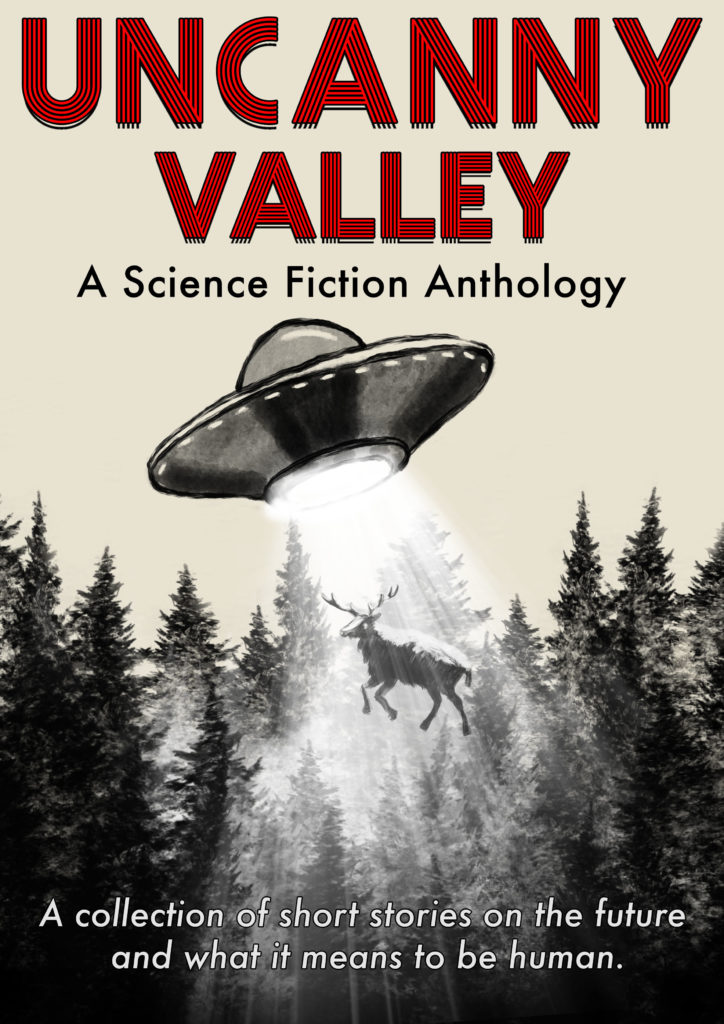
To celebrate the launch of Uncanny Valley: A Science Fiction Anthology we asked our authors four simple questions.
Our last interview is with Hunter Liguore, whose pensive and comedic take on the value of science fiction is inquisitive and insightful. With a backlog of science fiction behind her and a passion for writing itself, Hunter talks to us about about what science fiction means to her and the future.

What was the inspiration behind your short story?
“The Truth Lies About Science Fiction” is considered recursive science fiction, meaning that it deals specifically with the profession of writing or sci-fi about sci-fi. It celebrates the golden age of the genre by looking at the future of it.
I had the opportunity to meet one of the pioneers of the sci-fi genre, Barry Malzberg, who wrote the Nebula-nominated story called, “The Corridors.” He is most famous for his novel, Beyond Apollo, and other relevant works that were groundbreaking in being the harbingers for space exploration and humankind during the late-1960s and 1970s. His story ruminates and speculates on the genre through his personal experiences. My short story is a response to “The Corridors,” which (for me) painted a hopeless but realistic portrayal of sci-fi writing and publishing.
Ultimately, “The Truth Lies about Science Fiction” is a hopeful story, one that suggests, so long as there are writers doing honest work, there will be hope in the world—and universe.
What does science fiction mean to you?
In the spring of 431 BCE, Thucydides witnesses the technological advancements of the invading armies from sea to shore, during the siege of Plataea—a sight that had never been seen before, striking both fear and awe in the viewer. He marks the historic record for the purpose of suggesting: if these same conditions arise in the future, you may very well see a similar fate and prevent it. Likewise, if Thucydides began to write about the future of war, imagining how a 50-oar vessel might become bigger and mightier… or what technology it would eventually evolve to and the next, and how humanity might evolve with it, he may very well have been deemed a science fiction writer.
What’s your favorite science fiction artwork, book, or film?
“Cycle” by M. C. Escher depicts a whimsical person traversing a set of stairs—like the Fool or first card in the Tarot deck—who is unaware of the unknown, unpredictable future ahead where they dissolve into the geometric matrix, only to later reemerge in physical form, in perpetual motion. It bears significance in science fiction art for its ability to break down complex theories on relativity and quantum reality into a visual form.
